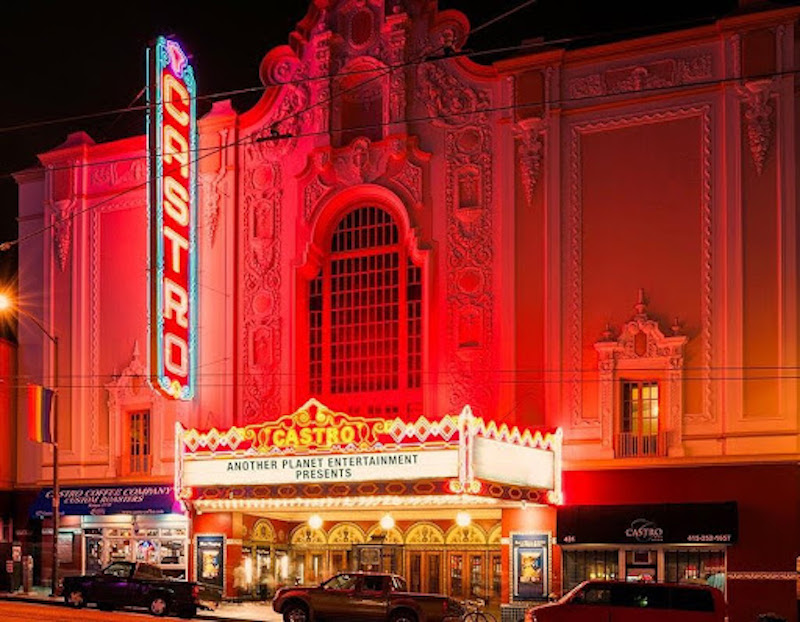If the Board of Supes decides to landmark the seats and the floor at the Castro Theater, Another Planet Entertainment, which has a lease on the site, might walk away and abandon the renovation plans that the place badly needs.
That’s what supporters of the company’s proposal to convert the venerable film house to a nightclub that will offer live music say, and it’s why they oppose the landmarking.
At recent hearings, a number of speakers said that losing APE and its deep pockets would mean losing the theater altogether (although since the exterior is already landmarked, it would be hard to, for example, tear it down and develop the site as something else.)

But this week, the nonprofit Castro Theater Conservancy put forward a detailed plan for running and renovating the theater is APE drops out:
This Plan will demonstrate that, should Another Planet Entertainment (APE) withdraw from the management of the Castro Theatre, the Castro Theatre Conservancy (CTC) is prepared to purchase the theater from the Nasser family or enter into a long-term lease for the renovation and operation of the Castro Theatre. … CTC would operate the Castro Theatre and demonstrate that it will preserve the intrinsic values of the building and its crucial features; return an active, every-day and every-night business to the fabric of the Castro neighborhood; preserve LGBTQ- and neighborhood-related programming; and operate the Castro as a community resource that will be financially sustainable without desecrating a national landmark. Our plan is a responsible, logical, immediately available, and superior alternative to the APE intention.
The plan rests on a very different concept for the future of the theater: The conservancy would run it as a nonprofit arts organization, similar to thousands of other nonprofit arts groups in the country, and rely not just on ticket sales but on fundraising and community support.
The group offers
a plan for activity every day of the year, including 200 days of repertory, first run, and other films that CTC itself presents, 52 days of Film Festival presentations, and 24 days of LGBTQ+-related programming. Additional programming of concerts, comedy nights, film festivals, drag shows, sing-alongs, etc.
It’s a bold and ambitious concept: If the Castro is indeed a community treasure, why not let a community-based nonprofit operate it, relying on regular donations from the community to help cover the operating costs?
From the plan:
Help us save local journalism!
Every tax-deductible donation helps us grow to cover the issues that mean the most to our community. Become a 48 Hills Hero and support the only daily progressive news source in the Bay Area.
The operation will proceed with a clear understanding that service to the community, particularly the LGBTQ+ community and to the art of cinema, comes first, and that the Conservancy is a nonprofit organization that, like arts organizations across the City and the nation, will function with a blend of earned income through ticket sales, concessions revenue, and rentals, along with a reliable, structured infusion of contributions from members and patrons. This is a model that tens of thousands of successful nonprofit community arts organizations have championed for generations.
There is, of course, a huge potential obstacle: The theater needs at least $10 million and maybe $20 million worth of renovations, and the Nasser family, which owns the property, has made it clear that a future tenant will have to pay that bill.
(The conservancy plan includes an offer to buy the theater, but the Nassers have repeatedly said they are not interested in selling. On the other hand, if the seats are landmarked and APE drops out, that position could change.)
So the conservancy would have to find some big donors, fairly quickly. And the Nassers would have to offer at least a 60-year lease.
Considering the rather large sums of money that big arts organizations, like museums and opera and symphony companies raise, $20 million is not insurmountable. The community raised at least that much for the construction of the LGBT Center, which has a $4.5 million annual budget. Most of that money comes from city grants (which could play a role in the Castro’s future) and donations.
“I think there’s no question,” Robert Byrne, president of the conservancy board, told me. “We have had a number of conversations with people of means, and it’s certain we would have their support. When it comes to the capital funding, these are not big numbers compared to what the opera and the symphony raise. People are very passionate about the theater.”
Another big issue: Is there still a place for a film-dominant theater in the world of streaming video?
The proposal is based on a projection that an average of 400 people will attend each of the film screenings. This is a city with a lot of film lovers, and many of them still like the idea of going to a big-screen theater (a recent film festival sold out at the Castro, which holds 1,400)
The conservancy, like APE, also plans to get a liquor license, which would add to its potential revenue.
If the conservancy can find the financial resources to make this plan work, it could serve as an alternative to APE—and a challenge to the idea that the landmarking of the interior means the end of the theater as a viable venue.





